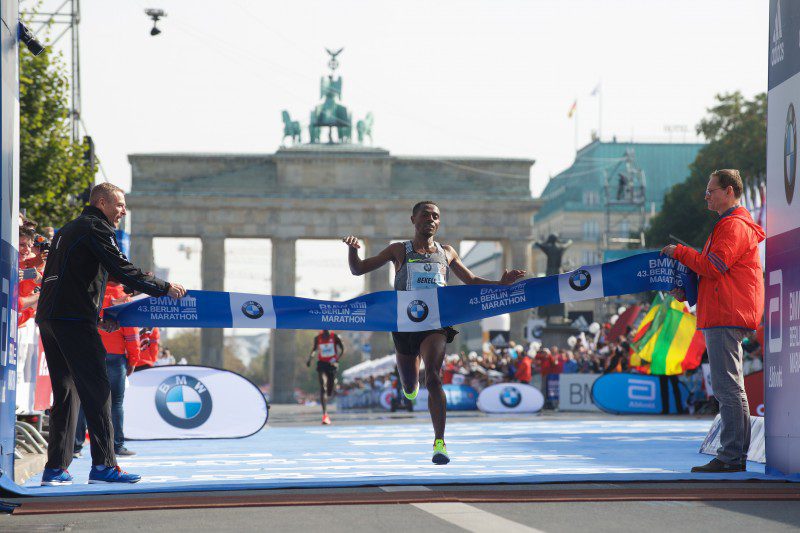Bekele’s last-ditch fitness prep for Berlin
The NN Running Team shares some insights into Bekele's preparation for his historic win in Berlin yesterday

Kenenisa Bekele stunned the running world Sunday morning with an electrifying comeback to the marathon dominance he demonstrated in Berlin in 2016. And he made a comeback not only in terms of his marathon performance overall, but within the race itself: dropping badly behind at 30K, Bekele recovered, shocking Birhanu Legese and Sisay Lemma as he passed them on his way to victory, only two seconds shy of teammate Eliud Kipchoge’s world record set here in 2018.
A blog post on the NN Running Team site published more than three weeks ago explains the last-ditch regime change that got Bekele healthy and ready for yesterday’s historic win, and there is nothing particularly radical in it–it was a matter of eliminating distractions (by traveling to the Netherlands to train for two months) and focusing exclusively on the basics of training, nutrition and recovery.
https://www.instagram.com/p/B3AXi22IVxw/
Of course, not everyone has the luxury of traveling to a location where they can focus on training to the exclusion of everything else in their life, but Bekele knew this was necessary if he was going to salvage his marathon career. A father of three and a hotel owner in Addis Ababa, he was loath to neglect his responsibilities at home, but acquiesced to his agent, Jos Hermans’, advice in making the sacrifice for the sake of a good result in Berlin.
RELATED: Bekele runs two seconds short of marathon world record in Berlin
In 2010 Bekele had a ruptured calf, and since then has been plagued by injuries to his ankle, Achilles tendons, back, hips, hamstring and foot. Despite setbacks, he won the Berlin marathon in 2016 in 2:03:03, the second-fastest marathon time in history at the time. Last year in Amsterdam, to the surprise of many, he left the course at the 35K mark. It turned out he had a stress fracture in his femur. After that he developed a knee injury.
Kenenisa Bekele misses out on world record by two seconds at Berlin Marathon https://t.co/7kbSVWeDOF
— The Guardian (@guardian) September 29, 2019
In May, Bekele travelled to Nijmegen in the Netherlands, where Hermans’ company, Global Sports Communication, is based, and spent two months rebuilding his fitness, correcting imbalances, fixing his nutrition and, most importantly, resting when he was not training. It was a matter of finding the sweet spot between too little training and too much–more easily said than done, even for a world-class athlete with access to all the best training, coaching and physiotherapy, but apparently the formula worked. Bekele napped between training sessions, building his mileage from 45K per week to 150K per week. He returned to Ethiopia several weeks before the marathon with the benefit of this eight-week period of consistent training and recovery in his legs, and the results were displayed yesterday.
Bekele’s goal is to crush the Olympic marathon next year. No word yet on the races he will target leading up to Tokyo.


